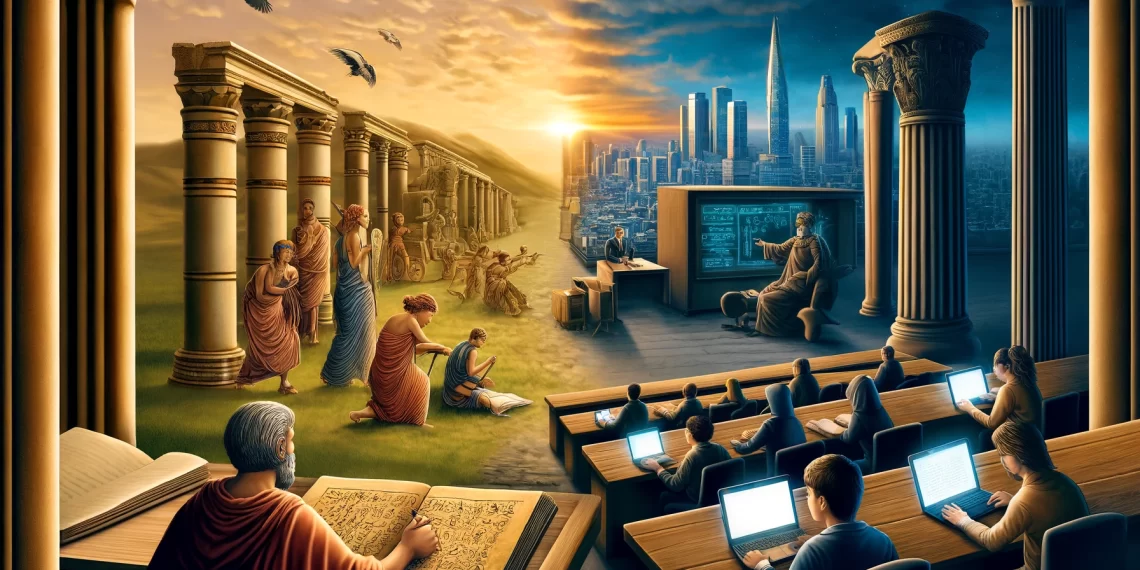Views: 0
From the inception of writing in ancient Sumer to the digital classrooms of the 21st century, education has undergone numerous transformative revolutions. Explore the pivotal milestones that have shaped how knowledge is imparted and absorbed across millennia.
- Introduction of Writing (c. 3500 BCE) – The development of writing systems in ancient civilizations like Sumer enabled the recording and transmission of knowledge, laying the foundational stone for structured education.
- Platonic Academy (c. 387 BCE) – Plato founded the Academy in Athens, one of the earliest recorded educational institutions in the Western world, emphasizing philosophy, mathematics, and scientific inquiry.
- Library of Alexandria (3rd century BCE) – This was a massive center of learning in ancient Egypt, hosting scholars from various fields and containing vast collections of manuscripts, significantly influencing education and knowledge dissemination.
- Islamic Golden Age (8th to 14th century) – During this period, major advancements were made in various scientific fields. Institutions like the House of Wisdom in Baghdad were critical in preserving and enhancing knowledge.
- University Foundations (12th Century) – The establishment of medieval universities in Bologna, Oxford, and Paris, which formalized higher education based on the liberal arts curriculum and set the model for modern universities.
- Printing Press (1440) – Invented by Johannes Gutenberg, it revolutionized education by making books cheaper and more accessible, thus promoting literacy and learning.
- Compulsory Education (19th Century) – Prussia was one of the first nations to introduce a compulsory education system, influencing educational policies worldwide.
- Educational Reforms Post-Industrial Revolution (18th-19th Century) – As societies industrialized, education systems were reformed to meet the needs of industrial economies, focusing on mass education.
- Montessori Education (Early 20th Century) – Developed by Maria Montessori, this revolutionary educational approach emphasized hands-on, individualized learning, influencing modern pedagogical techniques.
- Digital Revolution (Late 20th – 21st Century) – The introduction of computers and the internet brought about significant changes in educational methodologies, including distance learning and online courses.
- Globalization and Education (21st Century) – Increased connectivity and technological advancements have led to more international collaboration and access to education across different cultures and regions.
- COVID-19 Pandemic (2020) – The pandemic accelerated the shift to online learning, highlighting the importance of digital platforms in education continuity during crises.
These revolutions illustrate the dynamic evolution of educational systems influenced by social, technological, and economic changes (UNESCO Document and Publications) (How the education system works | ED100) (Tech Explorations) (Future Agenda).






![Jacob Wrestles with God [Genesis 32:22-32]](https://kingj.tv/wp-content/uploads/2024/04/Jacob-wrestling-with-God-from-Genesis-32_22-32-75x75.webp)




